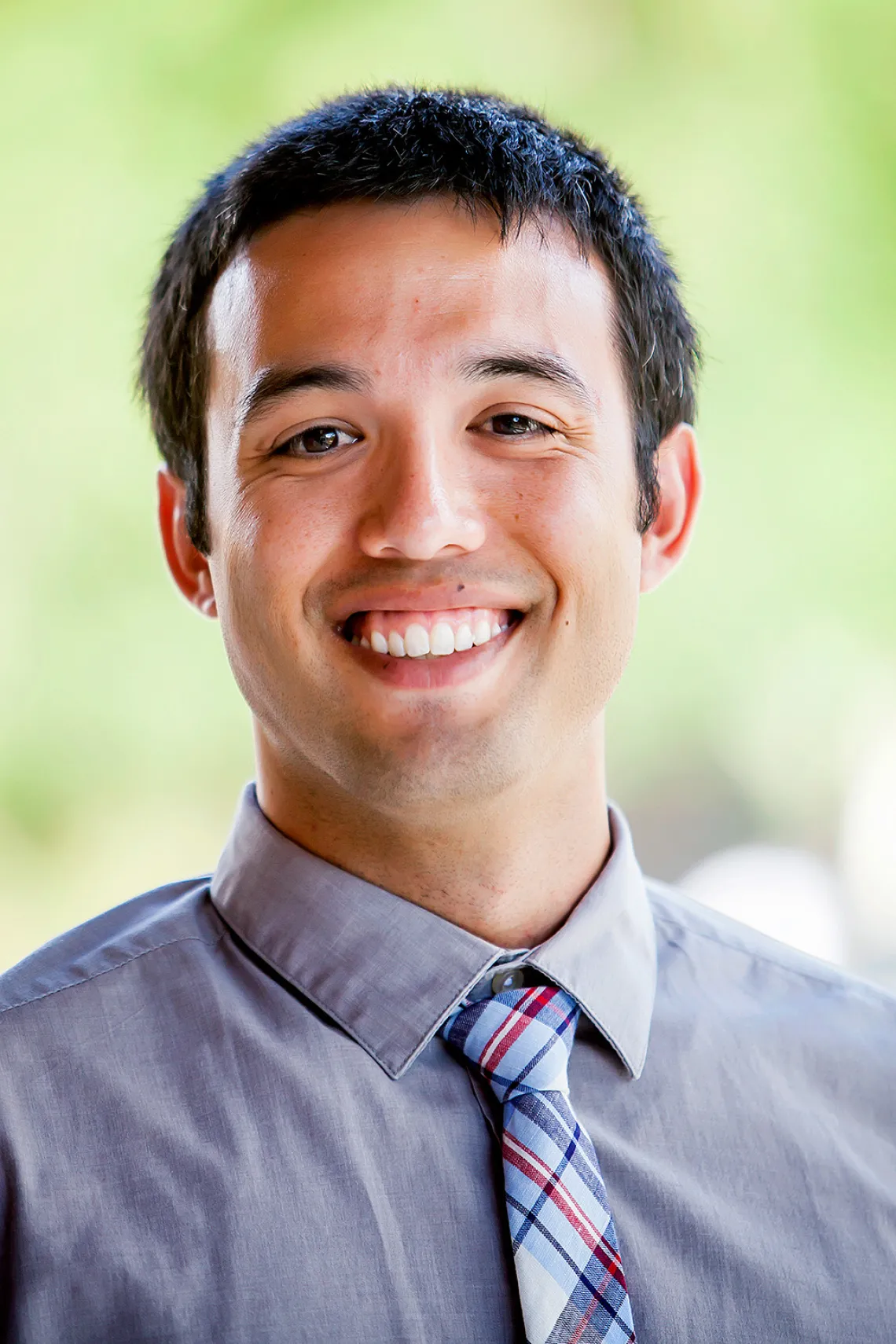Spotlight on Andrew Kunihiro - NIH F31

My name is Andrew Kunihiro and I am a 5th year PhD student in the Department of Nutritional Sciences. My dissertation research focuses on the metabolism and bioactivity of curcumin, a dietary polyphenol from the turmeric rhizome. Specifically, I look at how curcumin can prevent bone destruction caused by bone-metastatic breast cancer.
While I was lucky to have early, generous support through the UA Fellows program and a USDA National Needs Fellowship, I knew I would need additional funding for the latter years of my studies. While my first attempt, for an American Society of Nutrition predoctoral fellowship, was ultimately unsuccessful, I found the process to be a beneficial exercise in 1) technical writing, 2) conveying the importance of my research, and 3) gaining experience in grantsmanship, wholly separate from the monetary necessity.
Despite this failed attempt, I forged ahead researching other fellowships through the GradFunding Newsletter, PIVOT searches (training available through UA!), and word of mouth. As a biomedical researcher, I eventually settled on the “big one” and applied for a F31 predoctoral fellowship through the National Institutes of Health (NIH). Since the F31 has a similar format to other NIH grants (F33, RO1, etc.), I figured that even if I failed, I would gain invaluable experience that I could use in a future academic career. I finally submitted my application after months of honing and settled in for the inevitable wait…and waited...and waited. I submitted my application in August, had an initial score in December, was awarded in April, and did not receive my funds until June, so keep that timetable in mind when applying for an F-series grant.
Although complex, the F-series grants are achievable, and I definitely encourage students with health-related research projects to consider applying for F30/F31 predoctoral fellowships, especially if they want to continue in academia.
Some specific tips include:
- Be smart about which institute/center (IC) you apply to. Some programs have fewer applicants or fund a larger percentage of applicants, making your application more competitive. Most of this information is readily available online. Also make sure your research project aligns with their mission statement and reach out to your IC-specific Program Officers (PO) early in the application process to see if your project is fundable. Not only do POs choose which projects they fund, they are also an important resource and advocate for your project during the review process. So, build that rapport!
- Start early! Ideally 6 months ahead of the UA internal due date. The NIH F-series grants (F30/F31) are larger (30+ pages) and much more involved than some of the other opportunities advertised by Shelley and the Office of Fellowships & Community Engagement (OFCE). This information includes not only project-specific info (Specific Aims and Research Approach), but also supplemental information that is dependent on co-sponsors and collaborators that could delay your timely submission. Another benefit of starting early is that the process of writing grants distills your dissertation project into the essentials
- Because the F31 places such a high priority on training and professional development, it was important that I addressed any deficiencies in my or my PI’s backgrounds by bringing in a “dream team” of co-sponsors and collaborators with experience to fill these gaps.
- Take advantage of assistance provided by the university. These include the newly introduced F30/F31 resources through OFCE, Summer Fellowship Application Support Program, UA Writing Skills Improvement Program, UA Think Tank’s Writing Center, or feel free to contact me directly. Also take advantage of your peer network. I luckily knew a few students who had already applied, and although they were unfunded, their insight was invaluable in crafting my successful application.
The GradFunding Newsletter is a service of the University of Arizona Graduate College, Office of Fellowships and Community Engagement. You may reuse this article but please acknowledge Shelley Hawthorne Smith and the University of Arizona Graduate College Office of Fellowships and Community Engagement.
To subscribe to the newsletter, send an email to list@list.arizona.edu (link sends e-mail) with "subscribe (or unsubscribe) gradfunding FirstName LastName" in the subject line. You may send opportunities for posting or questions to address to the newsletter editor, Shelley Hawthorne Smith (shellh@arizona.edu)

